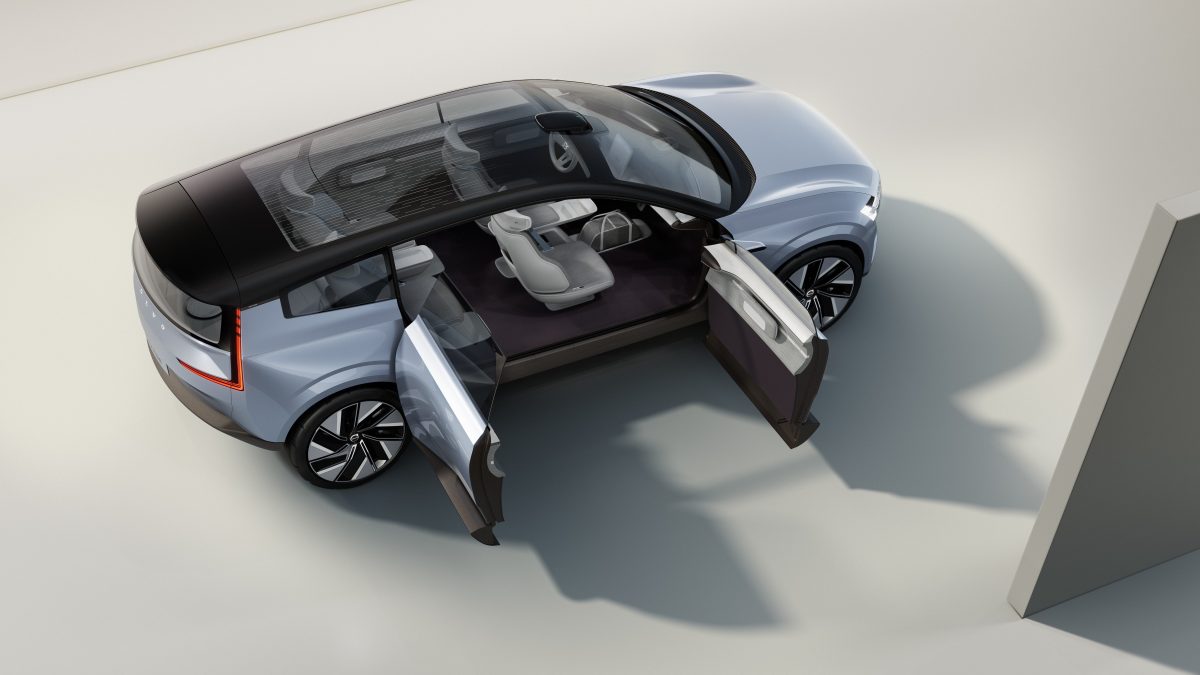Go to Source
Tag: Volvo
@Geely-Volvo: Volvo Cars and Geely Holding create Aurobay for joint powertrain operations
Go to Source
Press release No. 29/2021 – Vehicle registrations in June 2021
Date 07/05/2021 Flensburg, July 5, 2021. 274,152 new registrations Passenger cars (Passenger cars) caused registrations to increase by +24.5 percent in June 2021 compared to the same month of the previous year. The share of private registrations was 33.0 percent, +25.7 percent above the figure for the same month last year. Commercial registrations increased by… Continue reading Press release No. 29/2021 – Vehicle registrations in June 2021
@Daimler: 05. Jul 2021 Daimler Truck, the TRATON GROUP and Volvo Group plan to pioneer a European high-performance charging network for heavy-duty […]
July 05, 2021 – The three leading commercial vehicle manufacturers Daimler Truck, the TRATON GROUP and Volvo Group have signed a non-binding agreement to install and operate a high-performance public charging network for battery electric heavy-duty long-haul trucks and coaches across Europe. The joint aim is to initiate and accelerate the build-up of charging infrastructure… Continue reading @Daimler: 05. Jul 2021 Daimler Truck, the TRATON GROUP and Volvo Group plan to pioneer a European high-performance charging network for heavy-duty […]
Clean Technica: Norway’s Plugin EV Share Hits 85% In June, Combustion Vehicles Falling Rapidly001024
Norway, the EV revolution leader, saw plugin electric vehicles hit 85.0% share in June 2021, up from 66.3% in June 2020. Non-plugin powertrains, including old-school combustion, and plugless hybrids, are all fading away. Overall auto volumes broke a new seasonal record for June with 20,392 units sold. The Tesla Model 3 was Norway’s overall bestselling… Continue reading Clean Technica: Norway’s Plugin EV Share Hits 85% In June, Combustion Vehicles Falling Rapidly001024
German Manager Magazin: Tesla’s top model “S Plaid” catches fire000914
The US electric car maker Tesla delivered a total of 206,421 vehicles in the second quarter. That is more than ever before in a three-month period. Tesla exceeded Wall Street’s expectations, because Tesla boss Elon Musk had warned just a few weeks ago of difficulties due to the shortage of computer chips. Deliveries of the… Continue reading German Manager Magazin: Tesla’s top model “S Plaid” catches fire000914
@Geely-Volvo: Volvo Cars reports best ever first half year sales in 2021
Go to Source
Volvo unveils manifesto for all-electric future
Volvo has unveiled the manifesto for next generation of all-electric cars with the Concept Recharge. Representing a new paradigm in car design, the Concept Recharge also reflects Volvo Cars’ safety ambitions. In the Concept Recharge, the designers have been able to evolve the car’s proportions to increase interior space while also improving aerodynamic efficiency. They… Continue reading Volvo unveils manifesto for all-electric future
Volvo Cars sets the tone for its next-gen vehicles with ‘Concept Recharge’ EV
Volvo Cars wants to completely electrify its lineup by 2030 and on Wednesday offered a glimpse into how it plans to get there and what its next generation of vehicles might look like. But it’s not going to do it alone. Although the automaker plans on developing its own in-car operating system and other parts… Continue reading Volvo Cars sets the tone for its next-gen vehicles with ‘Concept Recharge’ EV
New Volvo Concept Recharge previews future flagship SUV
Volvo has unveiled a new Concept Recharge that previews the forthcoming electric-only XC90 successor that will spearhead its next generation of cars. The Swedish firm currently has two electric cars in its line-up, the XC40 Recharge and C40 Recharge, but both are built on the multi-powertrain CMA platform. The firm will launch the XC90 successor as… Continue reading New Volvo Concept Recharge previews future flagship SUV
